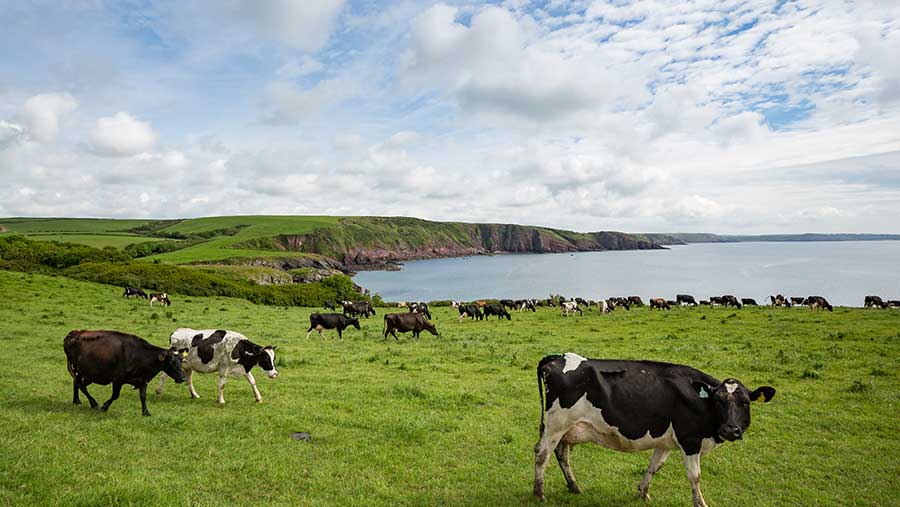£1m pot to tackle ammonia emissions on Welsh farms
 © Michael Evans/Adobe Stock
© Michael Evans/Adobe Stock Technology developers are being offered up to £200,000 in government cash to help reduce ammonia emissions from cattle farming in Wales amid a warning that levels are “creeping up”.
The Welsh government said it was offering up to five businesses a share in a £1m pot of funding to develop technology that prevents ammonia emissions, extracts it from the air or reduces its deposition onto sensitive habitats.
The government suggests that the cattle industry, in particular the dairy sector, is responsible for high levels of ammonia emissions.
See also: Planning delays hold up slurry store development in Wales
According to data, emissions in Wales have grown by 8% since 2005 and the trend is for levels to keep increasing.
Although that data doesn’t directly attribute that rise to agriculture, in the 2020 Clean Air Plan for Wales, the cattle industry is blamed for about 70% of ammonia emissions – and the dairy sector for about 45% of those.
At the recent NFU Cymru conference, Dr Niki Rust, head of land, agriculture and nature at the UK Climate Change Committee (CCC), said emissions had been creeping up since 2010 and that would make achieving net zero by 2050 “very challenging”.
Shortly after the conference concluded, Wales’ rural affairs minister Lesley Griffiths announced she was opening an application window for the Small Business Research Initiative (SBRI), insisting that tackling ammonia emissions was an important issue in Wales.
“We know most ammonia emissions come from the agriculture sector and so the challenge we are putting to businesses is primarily focused on this,” she said.
FUW response
But the Farmers’ Union of Wales (FUW) insisted that reaching net zero and other air quality targets “must include contributions from all sectors”.
“The Control of Agricultural Pollution regulations are also expected to reduce ammonia emissions therefore the Welsh government needs to allow some time before the results can be identified,” said an FUW spokesperson.
Through the SBRI, businesses will be funded to develop innovative products and services that lessen the harmful impacts of ammonia.
They must have a working prototype already operating on a farm and be able to demonstrate that it is cost effective for farmers.
